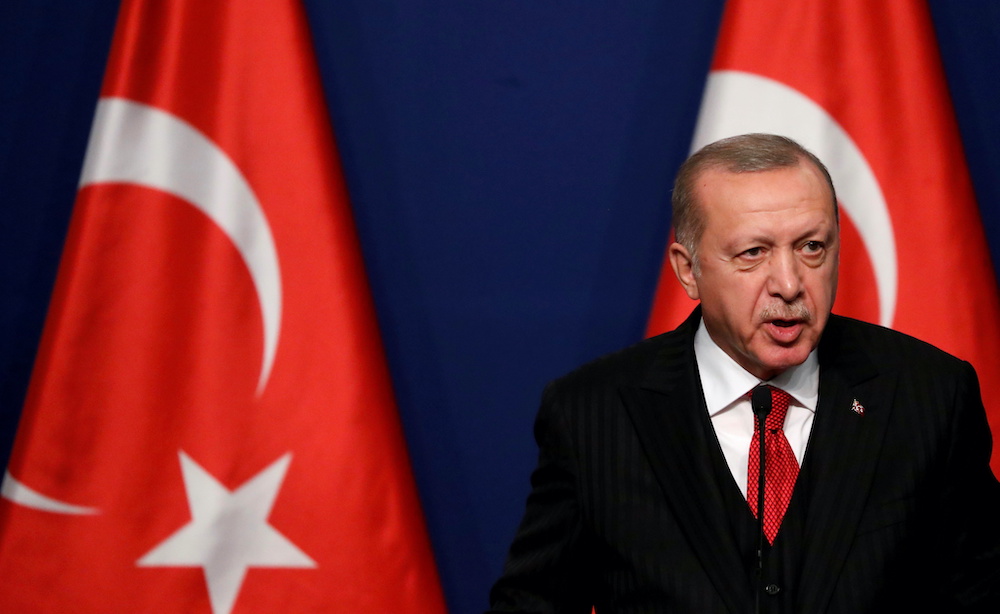ANKARA, July 16 — President Recep Tayyip Erdogan on Thursday said he would “never forgive traitors” as Ankara marked five years since a failed coup which led to a sweeping crackdown, mass arrests and saw the Turkish leader cement his grip on power.
On a balmy night on July 15, 2016, a rogue faction in the military tried to take over the country, using warplanes and tanks to attack government buildings.
Some 250 people — in addition to at least 24 plotters — died and more than 2,000 were injured in the ensuing chaos as Erdogan rallied his supporters out on the streets.
“This nation will never forgive treachery, traitors and those who stand behind traitors,” Erdogan said during a ceremony in Ankara, paying tribute to the victims.
The fateful night’s impact has been felt in almost every aspect of Turkish life, including education, the judiciary and the leadership.
The crackdown on alleged coup plotters, activists, human rights defenders and political opponents has helped Erdogan tighten the control he has amassed since rising to power in 2003.
But it complicated his relations with traditional Western allies and put a dampener on foreign investment due to concerns about the rule of law.
Less than a year after the coup attempt, Erdogan held a referendum to transform Turkey’s parliamentary democracy into an executive presidency.
He narrowly won and wields immense power, often announcing major decisions in overnight decrees.
“Erdogan has used the coup attempt to consolidate his grip on power,” veteran Turkey analyst Gareth Jenkins said.
‘Downsides’
Yet this has a political drawback when things go wrong, analysts warn, as they did across the world during the coronavirus pandemic.
“Having this much power also has its downsides: when things go wrong, like the current economic situation, it is harder to deflect the blame,” a Western diplomat told AFP.
Turkey suffers from persistently high inflation and the lira has lost two-thirds of its value against the US dollar since the week of the attempted putsch.
Turkey claims US-based preacher Fethullah Gulen plotted the coup using members of his network in the military.
Gulen denies the charges and insists his Islamic Hizmet movement promotes peace and education.
Washington’s refusal to extradite Gulen has been a constant irritant between the Nato allies.
Mass sackings
The post-coup crackdown has also decimated the Turkish military.
Defence Minister Hulusi Akar on Tuesday said Turkey has dismissed 23,364 military personnel in the fight against Gulen’s network.
More than 321,000 people have been detained in all since 2016, Interior Minister Suleyman Soylu said.
Most have been released, but the scale of the detentions has had a chilling effect.
Nearly 4,000 judges and prosecutors have been sacked, among over 100,000 public sector workers fired or suspended over alleged Gulen links.
The courts have handed life sentences to 3,000 people, according to state news agency Anadolu, while 4,890 defendants have been convicted over links to the coup bid.
On Wednesday, Erdogan showed no sign of slowing down.
“We will follow (his movement) until its last member is neutralised,” he said.
‘New Turkey’
Some observers believe Erdogan is now using his ability to survive a coup as the foundation for his legacy.
Turkey’s current borders were born from the war of independence fought between 1919 and 1923, and led by the founder of the secular republic, Mustafa Kemal Ataturk.
Erdogan leads an Islamic-rooted party and often refers to the “New Turkey” he is building as part of his own legacy.
“The coup does give the foundation for this myth of a New Turkey,” Jenkins told AFP.
Demonstrating the historical importance Erdogan attaches to the coup bid, he made a series of speeches on Thursday and inaugurated a “democracy museum” looking at the main events of the night which “changed Turkey’s fate”.
July 15 is also a public holiday in Turkey. — AFP






















